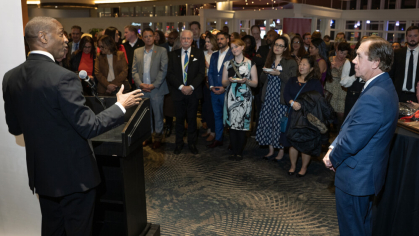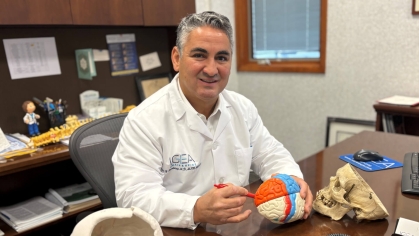
President William F. Tate IV announced a new scholarship fund to support the next generation of thinkers and creators during his inauguration as the 22nd President of Rutgers University. Named The Edge Fund—a nod to Tate’s frequent references to the Rutgers Edge—the new scholarship will celebrate students who achieve innovations in the arts, sports, science, and technology.

An endowed scholarship that supports nontraditional Rutgers School of Nursing–Camden students was created in memory of Lauren Rose Albert, a mother of three. This year’s recipient—a young mother who suffered the loss of her husband—is committed to honoring his memory by supporting mental health for veterans.

A six-time cancer survivor and chair of the Rutgers Cancer Institute Leadership Council, Subha V. Barry shares her inspiring story, visiting doctors and researchers who have played a crucial part in her journey. It’s a story of hope, determination, and empowerment—to act, as Barry says, “not with fear, but with a willingness to be a part of the solution.”




